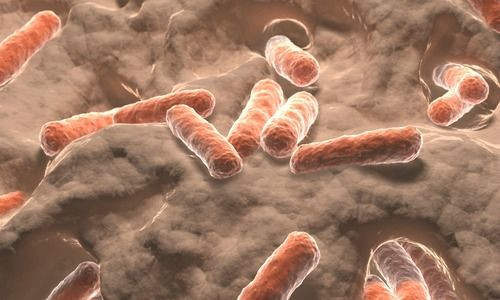Antibiotics Disrupt Gut Bacteria, Increases Risk For Obesity And Diabetes... In Mice

A new study published in the journal Cell suggests antibiotics received in early life disrupts gut bacteria, increasing chance for obesity and diabetes.
Researchers from New York University’s Langone Medical Center administered long-term, low-doses of penicillin to both 4-week-old mice and their mothers shortly after birth. Compared to their mothers, newborn mice were more likely to be obese and have worse metabolic health in adulthood.
"We identified infancy as a critical window where host metabolism is especially vulnerable to microbiota disruption with antibiotics," Martin Blaser, lead study author, said in a press release. "This highlights a need for judicious use of antibiotics in clinical practice in early life."
In a separate experiment, researchers found a month of penicillin exposure was enough to put mice at risk for obesity. This is because gut microbes begin to colonize at birth, and early disruption has negative, long-term effects on weight. In fact, Blaser and his team cited in the study that farmers have been using this approach in livestock for years to promote growth.
It’s not just medicated mice who have to worry about their gut bacteria. It impacts human health and nutrition equally as much. “Normalizing gut function is one of the most important things I do for patients, and it’s so simple,” Dr. Mark Hyman wrote on his website. “My patients find relief from allergies, acne, arthritis, headaches, autoimmune disease, depression, attention deficit, and more — often after years or decades of suffering.”
It makes sense, considering a person has 10 times more bacterial cells than human cells, according to Carolyn Bohach, a microbiologist at the University of Idaho. Literally listening to your gut means better health and reduced risk for disease. “It seems remarkable, but the little critters living inside of you have been linked to everything from autism to obesity, from allergy to autoimmunity, from fibromyalgia to restless leg syndrome, from delirium to eczema to asthma. In fact, the links between chronic illness and gut bacteria keep growing every day,” Hyman said.
Avoiding antibiotics as best you can is one way to ensure good gut bacteria. When that's not ideal, Hyman recommends eating fiber-rich foods, reducing sugar intake (like one noble Medical Daily writer), and taking daily probiotics. Supplements are available for the latter, but yogurt, kefir, kimchi, and tempeh are all natural sources.
Published by Medicaldaily.com



























